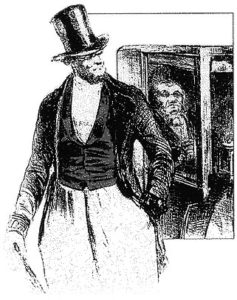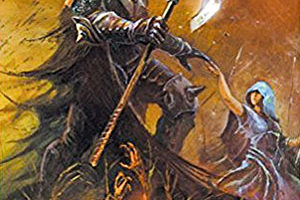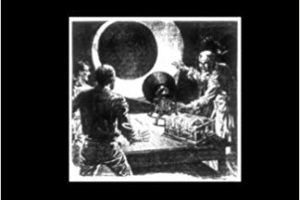
Who is the first fictional detective? Sherlock Holmes? But what about Edgar Alan Poe‘s C. Auguste Dupin, who appeared in 1841? Nope, its Monsieur Lecoq who appeared in 1866.
But maybe we need to be a little clear on things, as all of these characters were very important in the development of detective fiction. Lecoq is important as he was a policeman whose job it was to be a detective. Dupin was not a professional detective, and Holmes was a consulting detective, not a policeman.
Holmes also owes a debt to Lecoq. A major characteristic of the Lecoq stories was having an extended flashback sequence that explained the reasons behind the crime. This was also used in some of the Holmes stories, in particular A Study in Scarlet, along with The Valley of Fear and The Sign of the Four. Holmes even mentions Lecoq in the first Holmes story, but dismisses him as a “miserable bungler.” Both Lecoq and Holmes are also masters of disguise.
Monsier Lecoq was created by Émile Gaboriau, who had been secretary to Paul Feval, creator of the Black Coats series of crime novels. He based the character on the real Eugène François Vidocq, a real life criminal who later became a policeman and eventually the first director of the Sûreté. And an inspiration for several other early detective characters.
The Monsier Lecoq series by consists of the following:
- The Lerouge Affair (1866)
- The Orcival Crime (1867)
- File 113 (1867)
- The Slaves of Paris (1868)
- Monsieur Lecoq (1869)
He is introduced in the first work, but he is a secondary character, assisting armchair detective Tabaret, nicknamed “Père Tireauclair,” (basically “Father Bringer of Light,” or “Old Man Brings-to-light”), who serves as a mentor to Lecoq, kind of like Nero Wolfe or Mycroft Holmes.
Lecoq becomes the main character with the following works, with the final work, Monsieur Lecoq, actually telling of his first case. Black Coat Press has put out Monsieur Lecoq in one volume and recently came out with The Orcival Crime and File 113 in The Casebook of Monsieur Lecoq. All were adapted by Nina Cooper. No idea if they will also do The Slaves of Paris. Be advised these are both big books!
Going by internal chronology, Monsieur Lecoq is set in 1859, Lerouge in 1862, Orcival in 1863, File in 1864, and Slaves in 1867.
Monsieur Lecoq, like the other novels, has two parts. The first deals with the discovery of the crime and the activities of Lecoq to solve them. The second half gives a detailed history (usually a complex family history) of the events that lead to that crime.
In this story, the young Lecoq stumbles upon a crime: two men dead, and a third man dying. But police are unable to identify them. Lecoq’s boss wants to dismiss this as nothing more than a bar-room brawl gone wrong, but Lecoq notes things that are out of place. He also ties in a mysterious bum they had arrested earlier.
Working on a hunch and using disguises (as well as advice from Tabaret), Lecoq is able to unravel the crime, which is based on a long history of animosity between three families in the time after Napoleon. This history being detailed in the second part of the novel.
In The Orcival Crime we have a murdered countess, a ransaked home, and a missing husband! File 113 deals with a bank robbery. Who did it? The bank owner who lives above the bank, his trusted manager, or maybe someone else?
So if you like detective fiction, check this one out to see a forerunner of Sherlock Holmes!




I think that Gregory Temple deserves credit in this discussion as well.
Gregory Temple, the hero of Jean Diable, is part of the development of the crime thriller, which is a little different.
As a hero, he is still different then M. Lecoq. What makes M. Lecoq important is that he is the first procedural police detective, AND in his novels the focus is on the resolution of a murder, :not the rescue of an inheritance, a treasure, or some kind of grandiosely mad evil scheme”.
The focus of Jean Diable is more stopping an evil scheme.